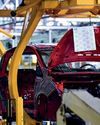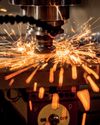Electric Vehicles Will Soon Be the Norm. But It Will Be Some Years Before India Can Catch Up

WHEN THE 2019 BUDGET WAS ANNOUNCED in February, while the automotive industry was not mention directly, Finance minister Piyush Goyal reaffirmed the government's commitment towards electric vehicles and their mission for 30% electric mobility by 2030. For long, there has been a stress that India should embrace electric mobility to overcome reliance on imported fossil fuels and gas, and greatly boost sustainable energy in India.
But much needs to be done before the country can adopt EVs. At the back-end, much work remains to be done be it in components or rules. Standing up for the automotive component makers, the Automotive Component Manufacturers Association of India (ACMA) said that the government should adopt a pragmatic approach to create a stable and long-term road map for a smooth transition to electric mobility. There have been reports that the government was considering a proposal to ban sale of internal combustion engine (ICE) for three-wheelers by 2023 and less than 150cc two-wheelers by 2025.
Prashanth Doreswamy, market head, Continental India, says, “The move towards EVs has been in the works for a while now, and OEMs and other manufacturers have been preparing for this move. It would definitely help to have a clearer road map for the industry to avoid frequent disruptions. For a greener tomorrow, we need a mix of drive technologies - EVs, cleaner gasoline engine, carbon-neutral synthetic fuels and fuel cells. The transition from internal combustion engines to EVs as proposed by GOI will follow a linear trajectory, with a surge only expected in the 2025-2030 timeframe.”
Denne historien er fra July 2019-utgaven av Manufacturing Today.
Start din 7-dagers gratis prøveperiode på Magzter GOLD for å få tilgang til tusenvis av utvalgte premiumhistorier og 9000+ magasiner og aviser.
Allerede abonnent ? Logg på
Denne historien er fra July 2019-utgaven av Manufacturing Today.
Start din 7-dagers gratis prøveperiode på Magzter GOLD for å få tilgang til tusenvis av utvalgte premiumhistorier og 9000+ magasiner og aviser.
Allerede abonnent? Logg på

Why expertise in process fluid solutions is key to aerospace manufacturing performance
India's aerospace sector has become a global hotspot for innovation, supported by a skilled workforce, cost advantages, and conducive policies. With top multinational corporations setting up manufacturing bases in the country, the industry is on an impressive growth trajectory.

AUTOMOTIVE: Auto PLI scheme drives Rs 20,715 Cr investment, boosts sales by Rs 10,472 Cr
With ongoing support for EVs and battery storage, India is set to lead in automotive technology.

Airbus selects Indian manufacturers for key A220 door parts
The collaboration between Dynamatic Technologies and Aequs underscores their shared dedication to excellence and innovation in aerospace manufacturing.

L&T secures ₹7,628 cr contract for Vajra artillery guns
The Ministry of Defence has signed a ₹7,628 crore agreement with Larsen & Toubro (L&T) for the procurement of K9 Vajra self-propelled artillery guns to strengthen the Army's firepower.

Jaya Hind Industries Crafting the Future of Manufacturing Through Innovation and Precision
India’s manufacturing renaissance owes much to Jaya Hind Industries Private Limited, a trailblazer in the sector for over seven decades. Part of the esteemed Dr Abhay Firodia Group, the company began its journey in 1947, evolving from a producer of basic auto components into a global leader in aluminium diecasting solutions. Serving some of the most respected Original Equipment Manufacturers (OEMs) worldwide, Jaya Hind has consistently redefined manufacturing excellence.

DIGITALIZATION: Digital transformation for chemical plants
The Indian chemical industry, contributing 7% to GDP, embraces digital transformation, IoT, and AI to enhance safety, sustainability, energy efficiency, and predictive maintenance.

What's next for the manufacturing industry in 2025?
Industry opinion on the year ahead in manufacturing.

Closing the skills divide
Bridging India's skills gap in manufacturing and engineering is crucial for equipping the workforce with the necessary expertise in emerging technologies like AI, IoT, and automation

Machine tools surge
From cutting-edge technology to global integration, these developments are reshaping India's machine tools industry and paving the way for its transformation and growth.
SHAPING THE FUTURE OF MANUFACTURING WITH INNOVATION AND COLLABORATION
Rajendra S. Rajamane, President of IMTMA, discusses how IMTEX 2025 will showcase emerging technologies, promote global collaborations, and tackle industry challenges.